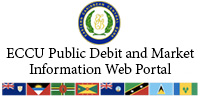Making it happen
Technology transfer is the sourcing, selection and delivery of scientific knowledge and expertise from a technology provider to a client requiring their services.
Governments and international agencies have a variety of policy tools for overcoming key barriers and creating enabling environments for technology transfer. Barriers and policy tools are discussed below briefly according to ten dimensions of enabling environments:
- National systems of innovation. Technology transfers are influenced greatly by what have been called national systems of innovation—the institutional and organisational structures which
support technological development and innovation. Governments can build or strengthen scientific and technical educational institutions and modify the form or operation of technology
net-works-the interrelated organisations generating, diffusing, and utilising technologies. - Social infrastructure and participatory approaches. Social movements, community organisations and non-governmental organisations (NGOs) contribute to the “social infrastructure” that plays an
important and enabling role in many forms of technology transfer. Governments can devise participatory mechanisms and adopt processes to harness the networks, skills and knowledge of civil
society, including community groups and NGOs, to better meet user needs, avoid delays and achieve greater success with technology transfer. - Human and institutional capacities. There are many failures of technology transfer that result from an absence of human and institutional capacity. Although much of the focus on capacity building
has been on enhancing scientific and technical skills for selecting, managing, adapting, and financing technologies are equally important. Capacity building is a slow and complex process to which
long-term commitments must be made. For adaptation there is a need to strengthen scientific and policy institutions to enable the undertaking of assessments and, to access datasets, tools and
techniques to produce outputs for national determined priorities. - Macroeconomic policy frameworks. Macroeconomic policies include direct and indirect financial support, energy tariff policies, trade and foreign investments policies, and financial sector regulation
and strengthening. - Sustainable markets. Sustainable market approaches are important for renewable energy and energy efficiency technology transfer because these approaches promote replicable, ongoing
technology transfers. Governments can conduct market transformation programmes that focus simultaneously on both technology supply (production technologies and product designs) and
demand (subsidies, consumer education and marketing). - National Legal institutions. National legal institutions are needed to secure intellectual property rights; reduce contract, property, and regulatory risks; and promote good governance and eliminate
corruption. To these ends, governments can strengthen national legal institutions for intellectual property protection; and strengthen administrative and legal processes to assure transparency,
participation in regulatory policy-making, and independent review. - Codes, standards and certification. The importance and the need for technical standards, codes and certification have been well recognised by the technical community all over the world. If
standards and codes are absent, transaction costs can increase, as each buyer must ascertain the quality and functionality of potential technologies individually, raising transaction costs. - Equity considerations. Equity in technology transfer can be enhanced by devising analytical tools and providing training for social impact assessments before technology is selected, and creating
compensatory mechanisms for ‘losers’. Governments may also wish to develop criteria for ensuring that technology transfer projects do not disempower or negatively influence weaker social groups
in a society.



